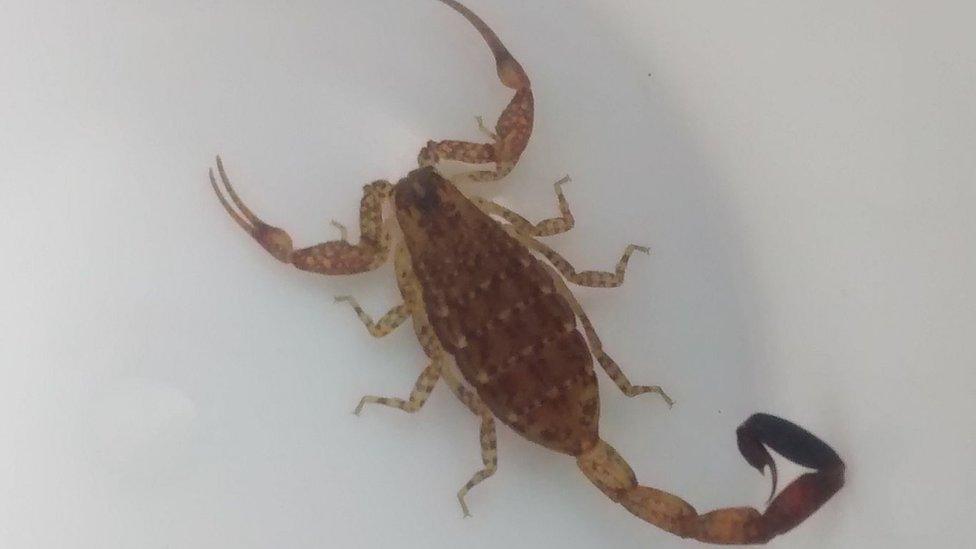Roofers find scorpion in box of slates
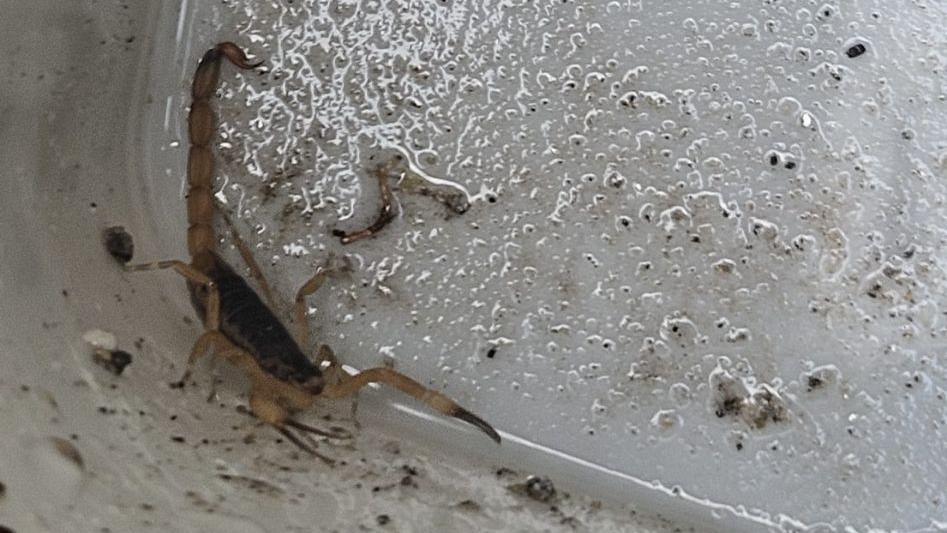
Roofers said the scorpion was found in a box of slates in Plymouth
- Published
A team of roofers had an "adrenaline pumping" moment when they found a live scorpion in a box of roof slates.
Jamie Cooke said his team were working on a job in the Derriford area of Plymouth when they made the surprise discovery in the box which was from Brazil.
The roofers found the scorpion - which was about 1cm (0.4in) long - on Monday.
The animal was taken to Plymouth Reptiles, in Cattedown, Plymouth, where bosses said they believed it to be a non-deadly common European scorpion.
Mr Cooke said it was his brother Ben who found the scorpion while taking slate tiles out of a box at about 09:30 BST.
"Ben got towards the bottom of the box and then suddenly said 'there's a scorpion in there'.
"I didn't believe him so I had a look and after carefully taking all the slate out, it was there."
Mr Cooke, 30, owner of Ocean City Roofing, said it was an "adrenaline pumping" moment when the scorpion was found and led to quite a lot of excitement with his colleagues.
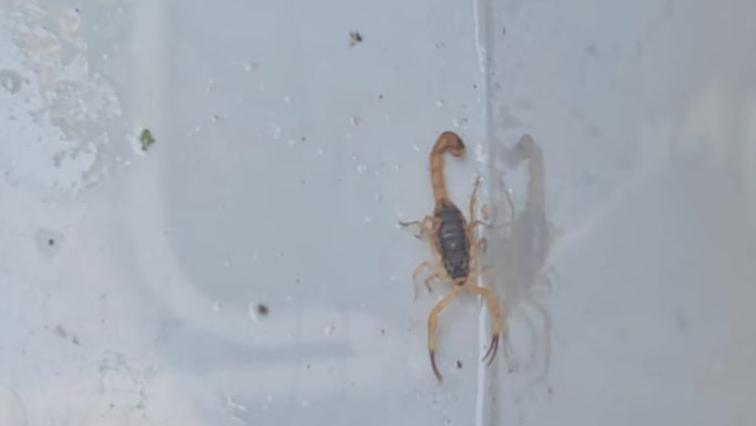
An expert said the animal appears to be a common European scorpion
Mr Cooke said he has found other animals and bugs hidden in boxes while on jobs, but never a scorpion.
"It was quite exciting to be honest.
"I wasn't scared when I saw the scorpion as I guess my adrenaline was pumping."
Mr Cooke and his colleagues managed to get the scorpion into another box and took it to Plymouth Reptiles, who help rescue exotic animals.
The shop's owner Mark Craddock said it was not the first time he had been asked to take in or rescue a scorpion.
He said despite the box coming from Brazil, it looked like the animal was a common European scorpion, which was not native to that country.
"It might have gotten into the box somewhere in transit between here and Brazil," Mr Craddock said.
"You wouldn't want to be stung by it, but it is not deadly."
Follow BBC Devon on X (formerly Twitter), external, Facebook, external and Instagram, external. Send your story ideas to spotlight@bbc.co.uk, external.
- Published28 December 2023
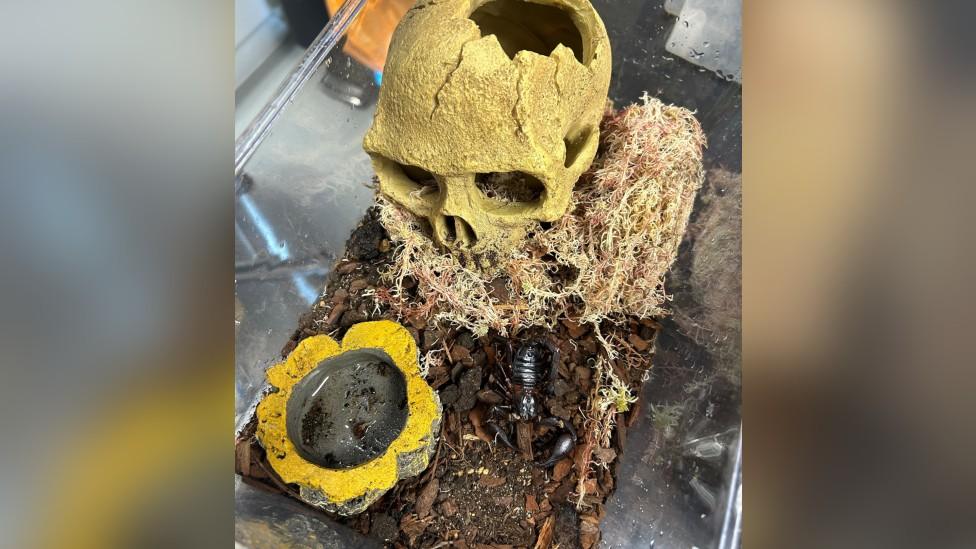
- Published24 September 2018
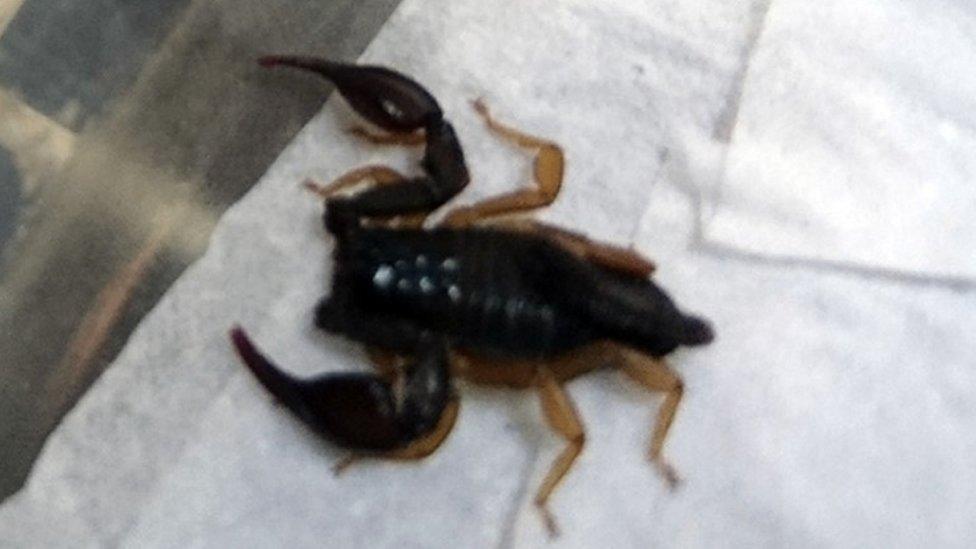
- Published1 April 2019
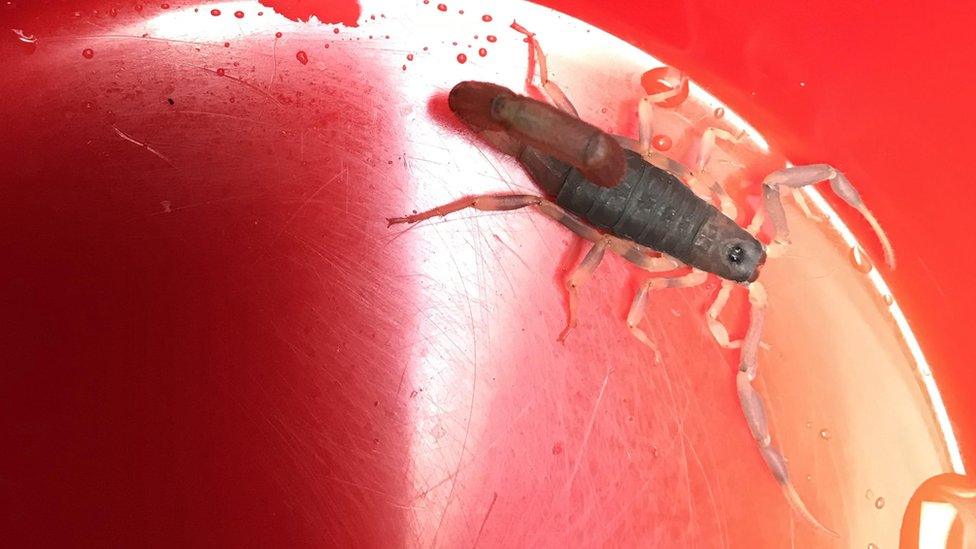
- Published23 November 2016
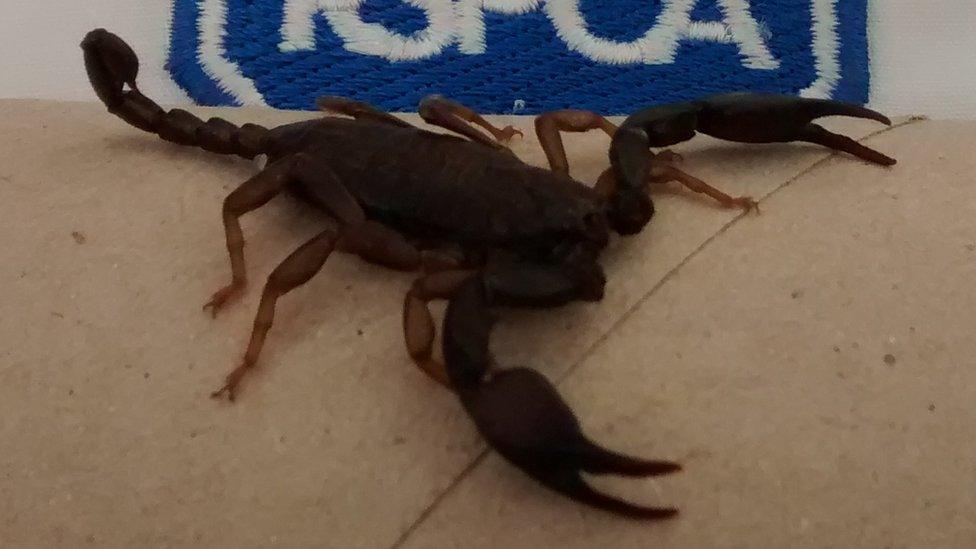
- Published21 November 2016
